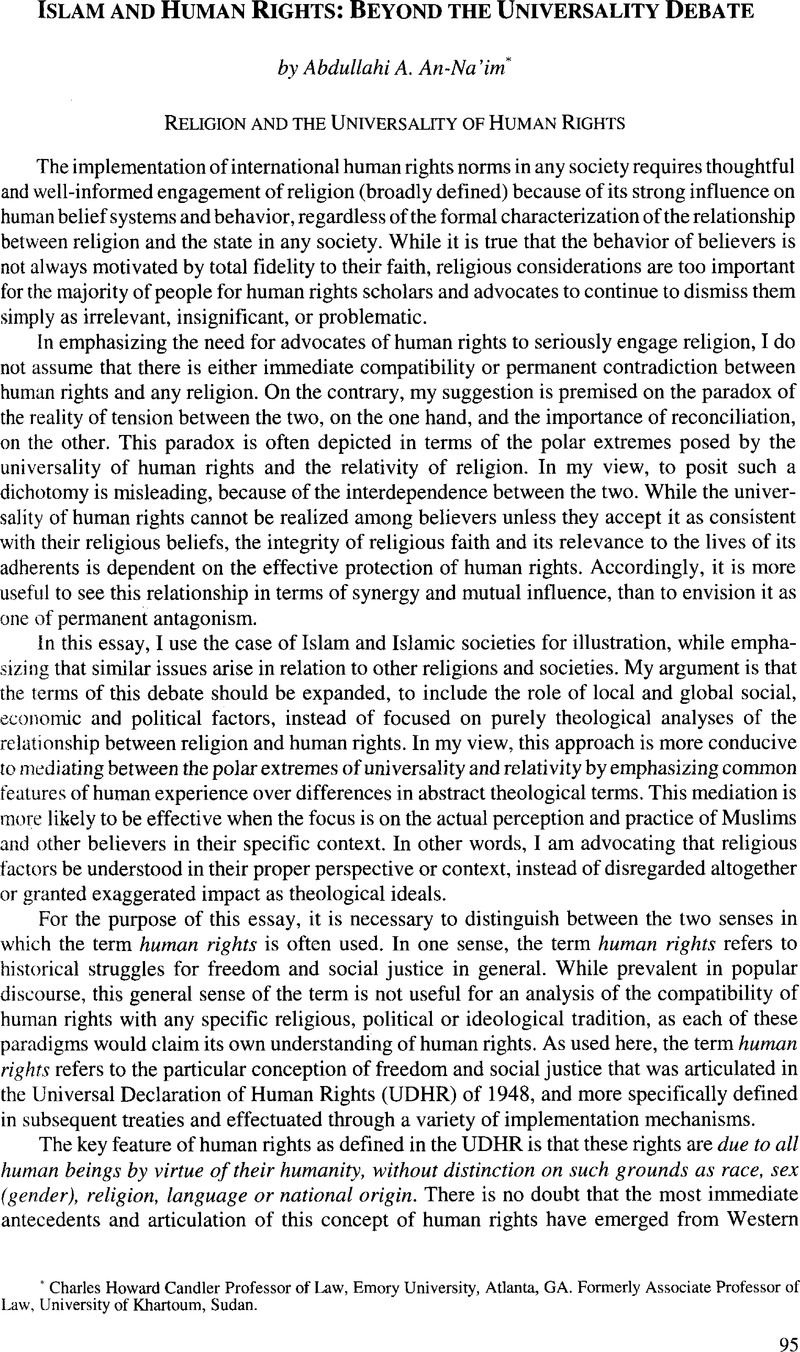Article contents
Islam and Human Rights: Beyond the Universality Debate
Published online by Cambridge University Press: 28 February 2017
Abstract

- Type
- Meeting Report
- Information
- Copyright
- Copyright © American Society of International Law 2000
References
1 While “humanitarian interventions” and actions by the UN Security Council can be cited as examples of coercive measures for the protection of human rights against the will of national governments, these mechanisms apply only in extreme cases and are too dependent on the political calculations of the major powers to qualify as part of a reliable system for the regular international enforcement of human rights norms.
2 See, generally, Human Rights in Africa: Cross-Cultural Perspectives (Abdullahi Ahmed An-Na’im & Francis Deng, eds.) (1990); Human Rights in Cross-Cultural Perspectives: Quest For Consensus (Abdullahi Ahmed An-Na’im, ed.) (1992).
3 On the origins and development of that historical understanding of sharia, see Abdullahi Ahmed An-Na’im, Toward An Islamic Reformation: Civil Liberties, Human Rights and International Law ch. 2 (1990).
4 Bernard Weiss, The Spirit of Islamic Law 116 (1998). Emphasis in original.
5 For a detailed discussion of discrepancies between historical formulations of sharia and modern international standards, see An-Na’im, supra note 3, at 4-7.
6 An-Na’im, supra note 3, at ch. 3.
7 Ahmed An-Na’im, Abdullahi, Toward an Islamic Hermeneutics for Human Rights, in Human Rights and Religious Values: An Uneasy Relationship ch. 16 (An-Na’im, Abdullahi A. et. al., eds., 1995)Google Scholar.
8 Bhewa and Alladeen v. Government of Mauritius, 1990 Mauritius Reports, 79-90.
- 8
- Cited by


